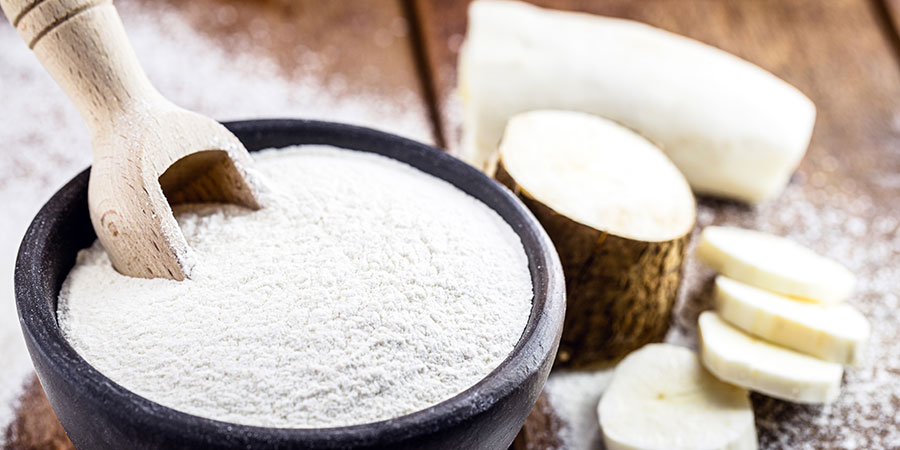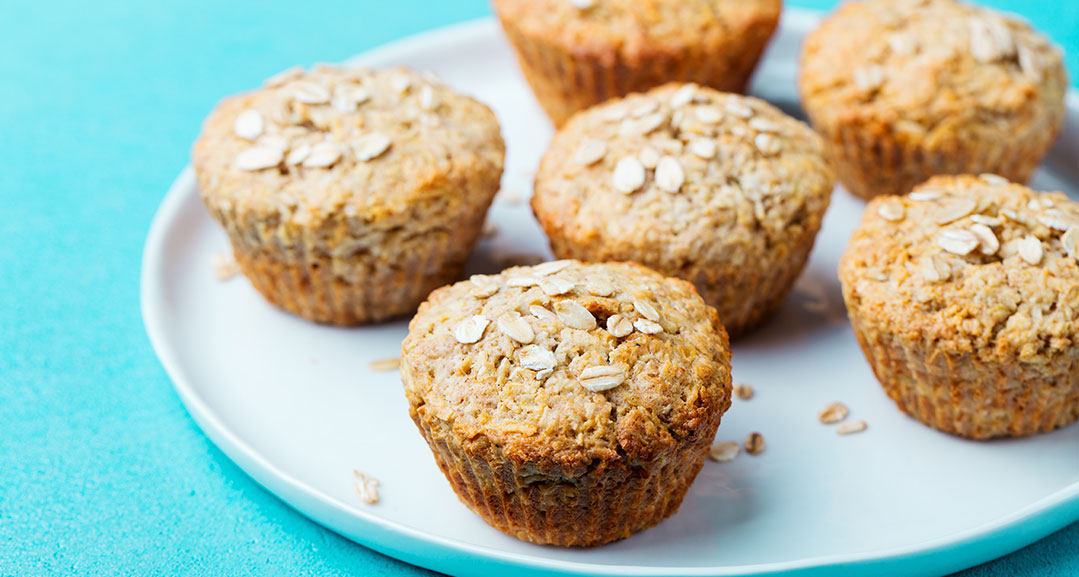
What the Heck is Cassava?
Cassava was trending in North America in 2018 for its grain-free, nut-free, gluten-free, and paleo characteristics and remains popular into 2021. It is a nutty-flavoured, starchy root tuber. It’s been a fixture of the West African diet for years because of its high levels of quality carbohydrates and its reliability to easily grow in drought-ridden or rainy climates. It’s a very useful tuber with a few potential health benefits. Curious? Let’s explore – what the heck is cassava?
Cassava and Sustainability
From food origin and transparency to customer experience and demands, the global food system is complex and interlinked. With the pandemic’s far-reaching implications in the food supply, more than ever traceability and sustainability are top of mind for both businesses and consumers in 2021.
Cassava is a versatile crop. It is drought-tolerant and can be grown in poorer soil, reducing the need for water and fertilizer application, plus it can survive in rainy climates. Also, cassava is mostly grown by smallholder farms in Latin America, Africa, and Asia, providing a source of income for farmers in developing countries.
 Cassava’s Culinary Applications
Cassava’s Culinary Applications
What the heck is cassava? You have probably already eaten it, as cassava is used for many products worldwide. Also known as yuca root, it can be cooked like a potato which allows for products such as fries, chips, and mashes. Further processed, cassava is used to make flour, modified and unmodified starches like tapioca, sweeteners, MSG, and alcohol.
I first wrote about cassava flour in my 2019 Bakers Journal Column – The Future of Gluten-Free Flours. Over the past five years, cassava flour has begun popping up in gluten-free and grain-free products including crackers, cookies and wraps as well as baking mixes.
Cassava Flour vs. Tapioca Starch
What the heck is cassava flour? It’s not tapioca starch! Although often the terms are used interchangeably, cassava flour is not the same thing as tapioca starch. Even though they originate from the same plant they are in fact different.
Cassava flour is produced from the entire tuber, and tapioca starch is more processed, extracted from the starchy pulp only, including washing and pulping steps. Because cassava flour contains the whole tuber, it has more fibre when compared to tapioca starch.
 Cassava and Health
Cassava and Health
Cassava has a few health benefits. Known mostly for its quality carbohydrate content, it is a source of a limited number of favourable nutrients including vitamin C and thiamine (1).
Heart Health
Cassava has a low glycemic index which means it has the potential to have blood sugar benefits. Cassava is not extremely high in fibre, but with a low glycemic index, it can improve the stability of blood sugar levels (1).
Cassava has a moderate amount of thiamine. Thiamine has been shown to improve cardiovascular health in diabetics. A study conducted by Al-Attas et al. shows that there are improvements in total cholesterol levels and LDL levels (2). This could lead to improved cardiovascular outcomes, as diabetics are typically at risk for cardiovascular events such as strokes and heart attacks.
Immune Health
Cassava is high in vitamin C which has been linked to immune health (1). Unfortunately, there have not been any long-term studies conducted specifically on the dose-response effect of consuming cassava and immune health. However, since cassava is high in vitamin C, it has the potential to support immune health, plus skin health.
 Final Thoughts
Final Thoughts
Cassava is a useful grain-free, gluten-free, nut-free tuber which is easy to grow in a variety of climates, as a result, it is a sustainable crop. Not known for its stellar nutrient profile, it does have a variety of culinary applications due to its quality carb content. Cassava flour is showing up in the baking and snacks sector, providing an alternative to wheat flour for consumers wanting to avoid wheat and gluten.
Remember no single food or ingredient is a silver bullet. Especially important now that we are in a global health crisis, a lifestyle filled with healthy habits including a balanced dietary pattern with nutritious snacks, exercise, and restful sleep is the best approach for long-term consistent, mind-body health. As we navigate 2021, will cassava be an ingredient on your menu?
Is your company in the better-for-you space?
Contact Jane and her team to assist you with your next project or speak at your upcoming events including podcasts & webinars!
References:
- Montagnac JA, Davis CR, Tanumihardjo SA. Nutritional Value of Cassava for Use as a Staple Food and Recent Advances for Improvement. Compr Rev Food Sci Food Saf [Internet]. 2009 Jul 1; 8(3):181–94.
- Al-Attas O, Al-Daghri N, Alokail M, Abd-Alrahman S, Vinodson B, Sabico S. Metabolic Benefits of Six-month Thiamine Supplementation in Patients with and without Diabetes Mellitus Type 2. Clin Med Insights Endocrinol Diabetes [Internet]. 2014 Jan 23;7: CMED.S13573.
Copyright © 2021 Jane Dummer | All Rights Reserved
